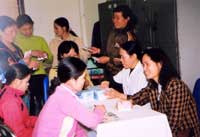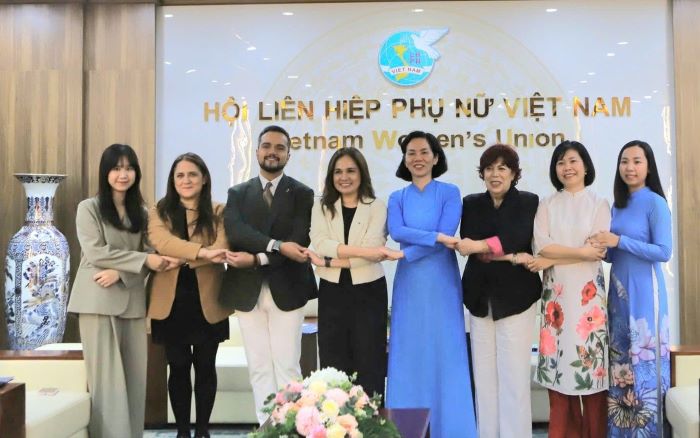Women’s Union tackles domestic violence

A Women’s Union survey made in Thai Binh, Lang Son and Tien Giang provinces showed that about 40 per cent of women were beaten and abused. The study showed that violence towards women that did not result in serious injury was seen as ‘normal’ in families and communities in
About 66 per cent of divorces resulted from domestic violence, the survey found.
In many cases, the victim of domestic violence was viewed as at fault because her family believed that she had not fulfilled her heavenly mandate as a woman and mother to maintain family happiness.
Ngo Thi Thu Ha from the Centre for Education Promotion and Enpowerment for Women said that the culture expects women to contain themselves and be tolerant.
Hoang Ba Thinh from the Research Centre for Gender, Family and Environment in Development noted that, in a time of improving economic conditions, many men have greater leisure time and opportunities to engage in negative behavior such as drinking, gambling, travelling and promiscuity, all seen as contributing to family disharmony and domestic violence.
The effect of domestic violence on both the psychology and spirit of women has become a serious social issue requiring society to develop effective measures to prevent it, Thinh said.
Preventing abuse
The Viet Nam Women’s
Many projects have promoted community awareness of domestic violence, as well as increasing the capacity of local partners to handle violence and aid victims.
A project in
In 20 communes of the province, domestic violence was found to be widespread in every social class, educational level, and between rural and urban areas. Local authorities only intervened in cases of serious injury.
The Women’s
The project has set up committees on preventing domestic violence and disseminated information on prevention measures.
The Centre for Education Promotion and Enpowerment for Women has also carried out a programme to prevent domestic violence in seven districts and townships in Lao Cai, Quang Ninh and Ha Tay provinces.
The programme has developed activities including training counselors, establishing and maintaining clubs for marriage and family, organising competitions on public information campaigns, and putting the issue into local regulations.







